Filter by
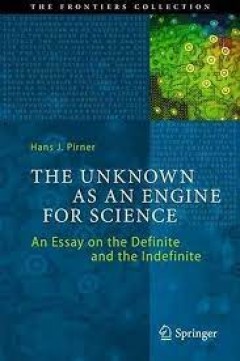
The Unknown as an Engine for Science An Essay on the Definite and the Indefi…
This book explores the limits of our knowledge. The author shows how uncertainty and indefiniteness not only define the borders confining our understanding, but how they feed into the process of discovery and help to push back these borders. Starting with physics the author collects examples from economics, neurophysiology, history, ecology and philosophy. The first part shows how informatio…
- Edition
- -
- ISBN/ISSN
- 978-3-319-18509-5
- Collation
- -
- Series Title
- -
- Call Number
- -

The Theory of New Classical Macroeconomics A Positive Critique
This book examines new classical macroeconomics from a comparative and critical point of view that confronts the original texts and later comments as a first dimension of comparison. The second dimension appears in a historical context, since none of the new classical doctrines can be analyzed ignoring the parallelism and discrepancies with the theory of Keynes, Friedman or Phelps. Radicalism o…
- Edition
- -
- ISBN/ISSN
- 978-3-319-17578-2
- Collation
- -
- Series Title
- -
- Call Number
- -
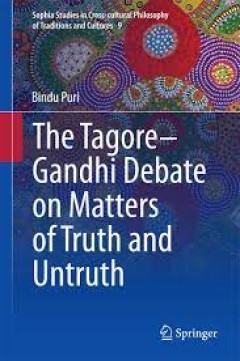
The Tagore-Gandhi Debate on Matters of Truth and Untruth
Between 1915 and 1941, Tagore (1861-1941) and Gandhi (1869-1948) differed and argued about many things of personal, national, and international significance---satyagraha, non-cooperation, the boycott and burning of foreign cloth, the efficacy of fasting as a means of resistance and Gandhi’s mantra connecting “swaraj” and “charkha”. The author tracks the development of this dialogue an…
- Edition
- -
- ISBN/ISSN
- 978-81-322-2116-6
- Collation
- -
- Series Title
- -
- Call Number
- -
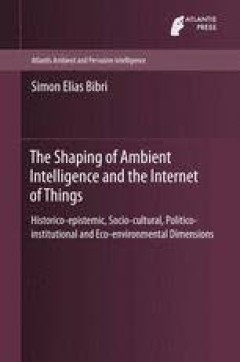
The Shaping of Ambient Intelligence and the Internet of Things Historico-epi…
Recent advances in ICT have given rise to new socially disruptive technologies: AmI and the IoT, marking a major technological change which may lead to a drastic transformation of the technological ecosystem in all its complexity, as well as to a major alteration in technology use and thus daily living. Yet no work has systematically explored AmI and the IoT as advances in science and technolog…
- Edition
- -
- ISBN/ISSN
- 978-94-6239-142-0
- Collation
- -
- Series Title
- -
- Call Number
- -
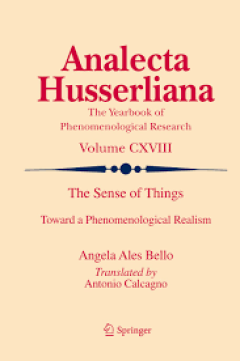
The Sense of Things Toward a Phenomenological Realism
This book proposes a new interpretative key for reading and overcoming the binary of idealism and realism. It takes as its central issue for exploration the way in which human consciousness unfolds, i.e., through the relationship between the I and the world—a field of phenomenological investigation that cannot and must not remain closed within the limits of its own disciplinary borders. The b…
- Edition
- -
- ISBN/ISSN
- 978-3-319-15395-7
- Collation
- -
- Series Title
- -
- Call Number
- -
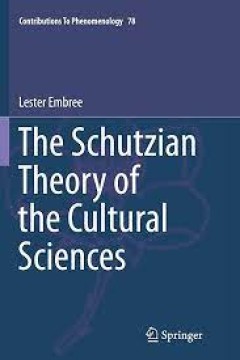
The Schutzian Theory of the Cultural Sciences
This work is devoted to developing as well as expounding the theory of the cultural sciences of the philosopher Alfred Schutz (1899-1959). Drawing on all of Schutz’s seven volumes in English, the book shows how his philosophical theory consists of the reflective clarifications of the disciplinary definitions, basic concepts, and distinctive methods of particular cultural sciences as well as t…
- Edition
- -
- ISBN/ISSN
- 978-3-319-13653-0
- Collation
- -
- Series Title
- -
- Call Number
- -
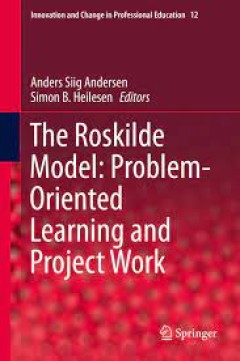
The Roskilde Model: Problem-Oriented Learning and Project Work
This book describes the pedagogical foundations of the Roskilde Model of education and educational design. It presents knowledge about how principles of problem-oriented, interdisciplinary and participant-directed project work may serve as a basis for planning and applying educational activities at institutions of higher learning. It discusses the dilemmas, problems, and diverging views that ha…
- Edition
- -
- ISBN/ISSN
- 978-3-319-09716-9
- Collation
- -
- Series Title
- -
- Call Number
- -
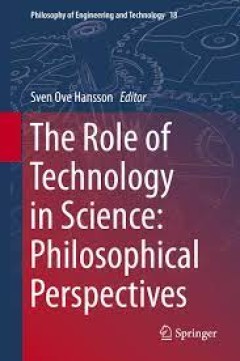
The Role of Technology in Science: Philosophical Perspectives
This edited volume explores the interplay between philosophies in a wide-ranging analysis of how technological applications in science inform our systems of thought. Beginning with a historical background, the volume moves on to explore a host of topics, such as the uses of technology in scientific observations and experiments, the salient relationship between technology and mechanistic notions…
- Edition
- -
- ISBN/ISSN
- 978-94-017-9762-7
- Collation
- -
- Series Title
- -
- Call Number
- -
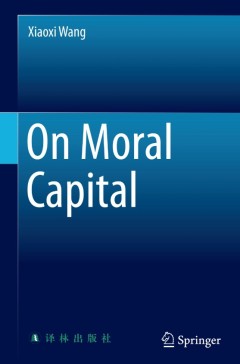
On Moral Capital
This book promotes the original concept of “Moral Capital” as the key to analyzing the nature and function of morality in economic activities. The book is divided into three major sections. In the first, the author argues that the logical connections between morality and economy and those between morality and profit provide a concrete theoretical basis for the concept of moral capital. In t…
- Edition
- 1
- ISBN/ISSN
- 978-3-662-45543-2
- Collation
- XI, 266
- Series Title
- -
- Call Number
- -
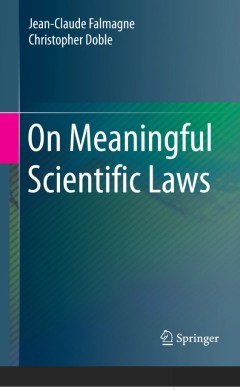
On Meaningful Scientific Laws
The authors describe systematic methods for uncovering scientific laws a priori, on the basis of intuition, or “Gedanken Experiments”. Mathematical expressions of scientific laws are, by convention, constrained by the rule that their form must be invariant with changes of the units of their variables. This constraint makes it possible to narrow down the possible forms of the laws. It is clo…
- Edition
- 1
- ISBN/ISSN
- 978-3-662-46097-9
- Collation
- XIII, 170
- Series Title
- -
- Call Number
- -
 Computer Science, Information & General Works
Computer Science, Information & General Works  Philosophy & Psychology
Philosophy & Psychology  Religion
Religion  Social Sciences
Social Sciences  Language
Language  Pure Science
Pure Science  Applied Sciences
Applied Sciences  Art & Recreation
Art & Recreation  Literature
Literature  History & Geography
History & Geography